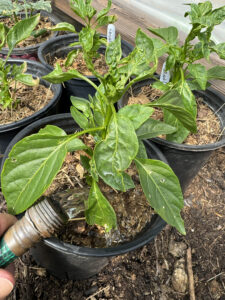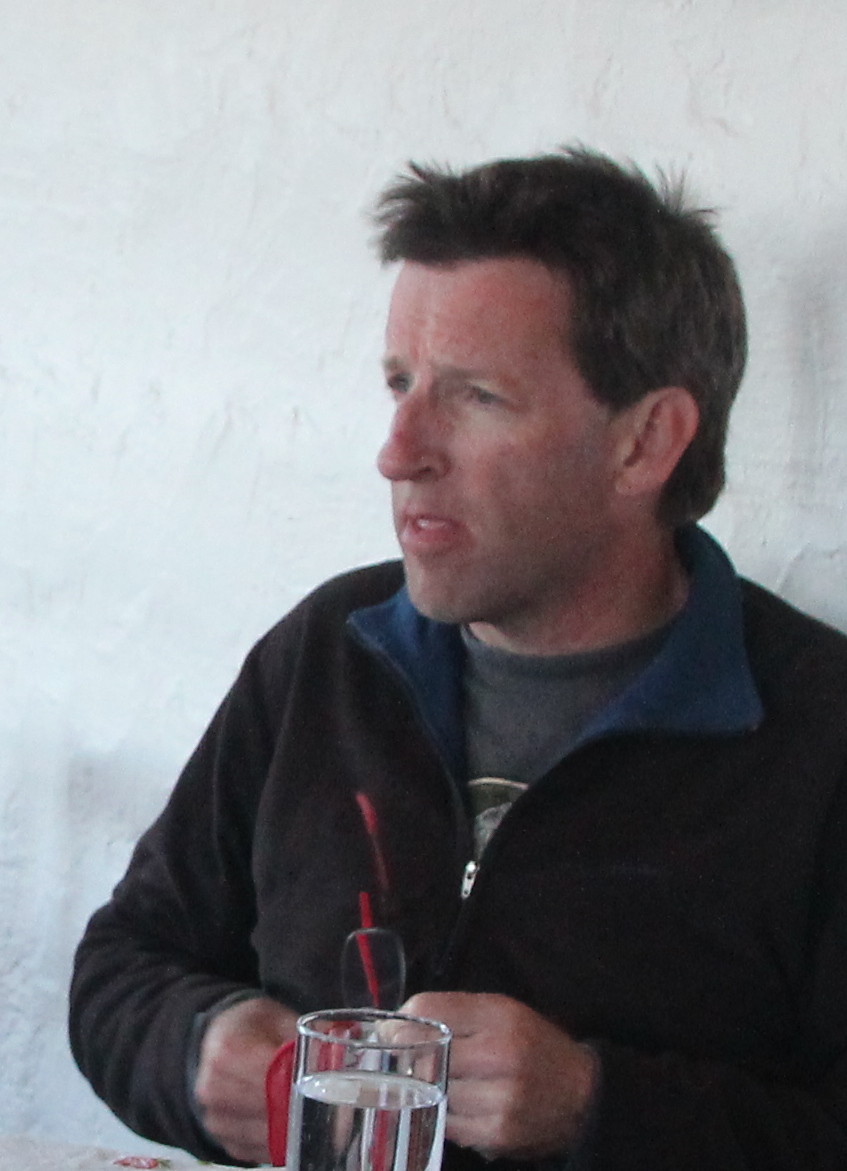 Where I grew up, in the upper Midwest, summer evenings were long enough that as a young child I was often sent to bed before it was fully dark. It always seemed a cruel sentence to me, especially on the longest evenings in June when I could still catch the sounds of usually older kids shouting or riding their bikes or otherwise enjoying the mild evening air.
Where I grew up, in the upper Midwest, summer evenings were long enough that as a young child I was often sent to bed before it was fully dark. It always seemed a cruel sentence to me, especially on the longest evenings in June when I could still catch the sounds of usually older kids shouting or riding their bikes or otherwise enjoying the mild evening air.
But the sprinklers were a solace. My parents had bought a walking sprinkler that was shaped a bit like an old-fashioned steam locomotive, and through some magic of gearing and water pressure it was able to roll itself across the lawn, trailing its feeder hose behind. As it did it sent arcs of water across the green expanse with a distinctive tick-tick-tick noise that to me is one of the great sensory memories of childhood—along with its partner, the distinctive smell of moist and fresh-cut grass wafting through open windows.
Maybe it is this early experience that makes me such a fan of the time I spend watering. Every morning I get up not long after the sun does, make my coffee, and head out into the vegetable garden. Every morning there is work of some sort to do—moving compost, re-potting some starter plants, harvesting some lettuce—but as the weather warms the focus of my time shifts more and more to regular watering. As we bought a big rainwater collection tank that we installed as part of our COVID-era garden upgrades, this mainly entails using a low-pressure hose to water the plants by hand.
On the one hand, this is a pretty deliberately inefficient process, as I have to move the hose end manually from plant to plant, using my mental clock to figure the right amount of time. It’s not the sort of task that I can leave for a while. On the other hand, there is my coffee, steaming black, and I figure that if I were not engaged with a physical task while drinking it I would instead be sitting somewhere, staring off into space—so why not, then, engage myself with a genuinely productive task while I am doing the vital work of caffeination?
I know I am not the only one to use a beverage to pace out a necessary, potentially tedious task. Some years ago I got to spend some time in Hatch, New Mexico, to interview chili farmers and learn about how they were coping with water shortages on the Rio Grande. I got hooked up with a large family of growers who presided over fields of chilis and onions, all of them irrigation-fed with water either from the river or pumped up from shallow wells. The river water was better for the crops, they told me, so they used it whenever they could.
The when, though, was not in their control, but rather decided by the water masters who determined when the flow would be released through the maze of canals. This meant that the farmers had to be onsite when the water came, day or night.
It was early summer when I was there. The days were long and hot, but the water would not be coming until after dark. There would be no drinking of coffee. Rather, the protocol for the farmer I accompanied was to head to the local quick mart—essential cog in the running of any small farm town—and stock up on a 30-pack of cold Budweiser. Stash it in a cooler. The night would not cool down much. Then head back to the fields along a bumpy maze of canal-side dirt roads. I could never have found the way on my own. And then the work began.
I think back on that night now when I take some roasted chilis out of the freezer or, when those have run out, open a can of Hatch greens, knowing that each of these essential vegetables was overseen at some time by someone who had to be in the right place at the right time to open the headgate at the top of each row, wait the requisite time—one can of Bud for every few rows, perhaps—then moved along down the field edge, watering plants and plant keepers at the same time. It was a lonesome task, I heard that night, except on those occasions when there was a visitor like me to keep the stories flowing. I don’t remember many of the specifics—my host, in affable middle age, was generous with those Buds—except that they tended to focus on high school car wrecks and family spats, flash floods and droughts, the kinds of unruly events that make it clear that the seemingly organized control of nature being exercised here was only partial. It was a tough business, being a farmer, and I heard a lot about how the river’s flow had become unpredictable, how other landowners were planting pecan groves that needed more water than vegetables, how the prices paid for crops were never enough to outweigh the growers’ expenses.
The stars wheeled overhead, the water purled almost silently, our footfalls were soft on the beaten dirt. The beer went down cold, tasting just fine long after any real thirst had been quenched. Whatever the uncertainties of water supplies, of farming, of simply being in a time of rapid change, I recognized in the regular click of the can lids being opened the same sort of bodily comfort I remembered from those childhood nights.

